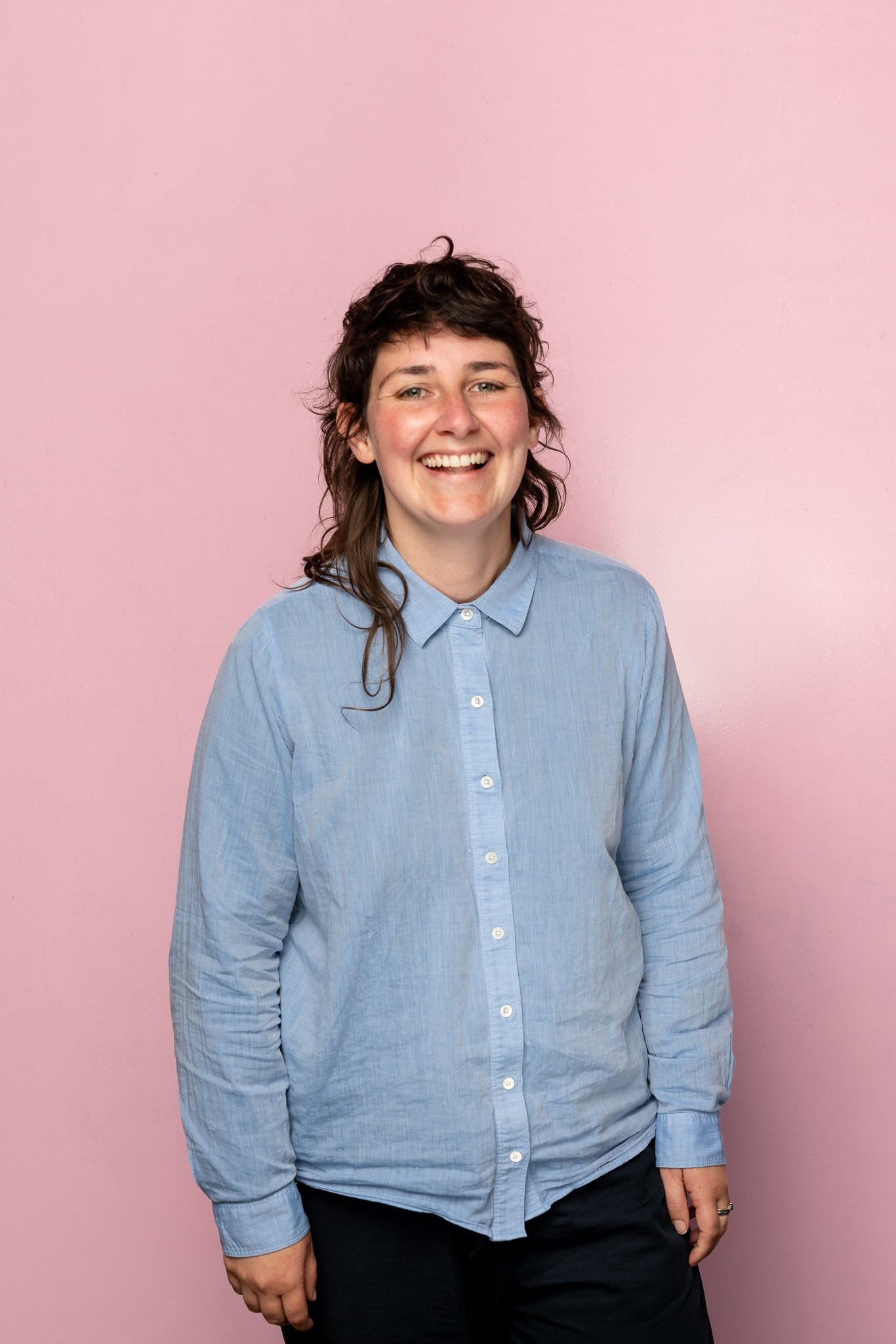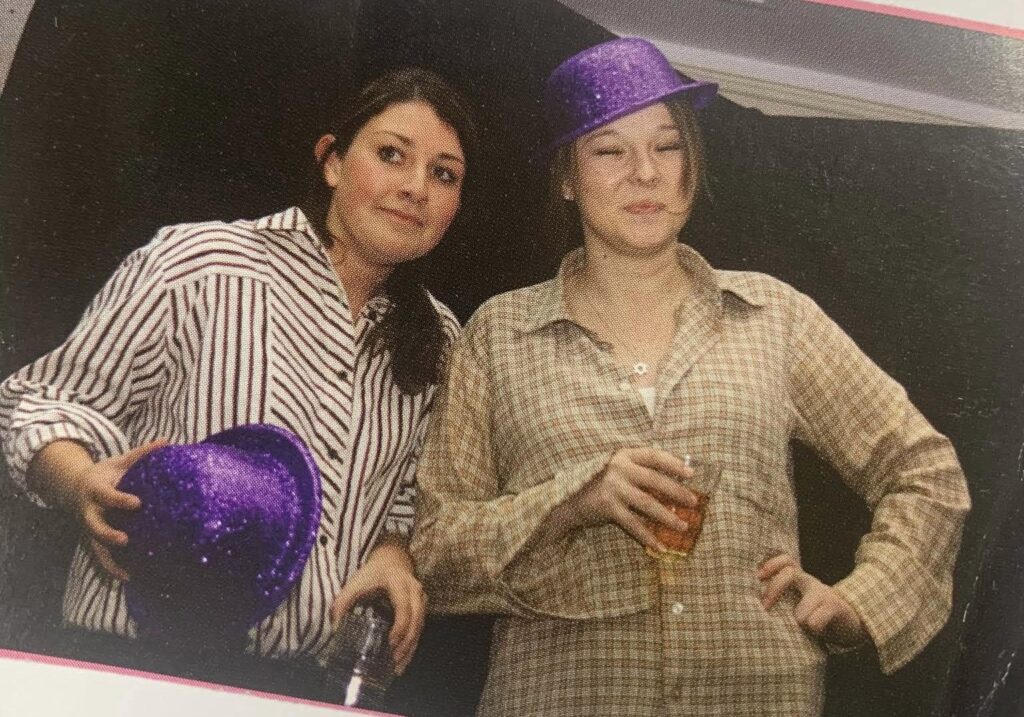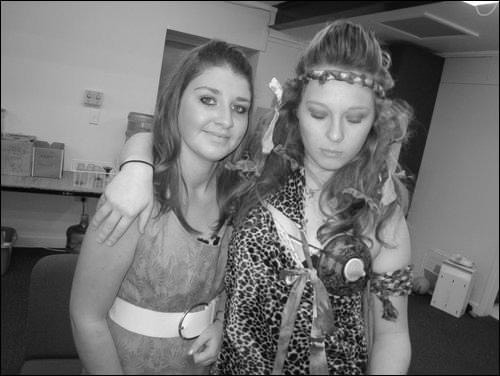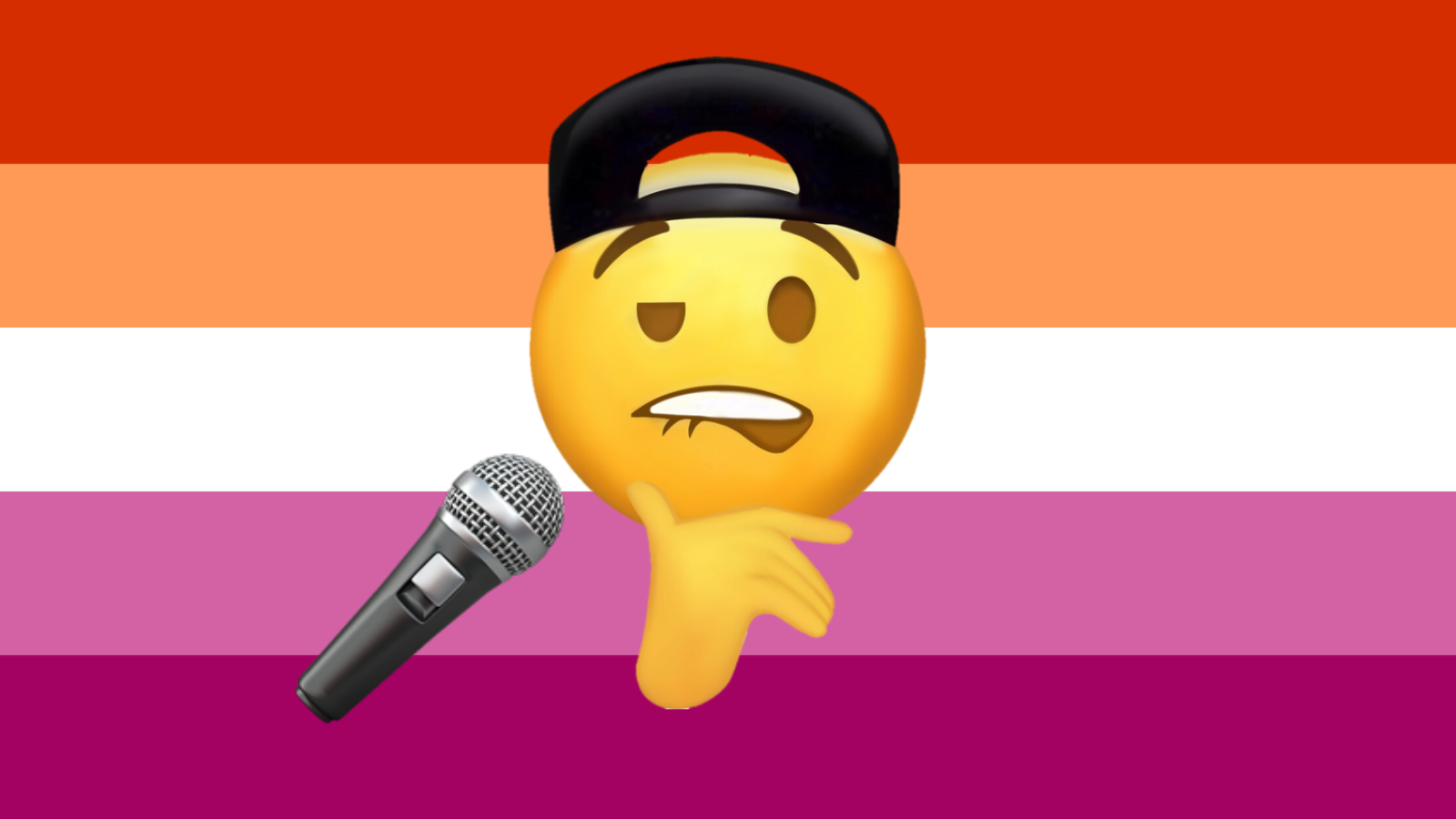Sarah Tuck and I both attended Mahurangi College, a small, rural secondary school in the ’00s. We both came out shortly after graduating, and we love to perform. Also, we are both called ‘Sarah’. When I saw their name on the lineup for the Can’t Think Straight variety show, I figured I should give them a call to chat through the quirks of being queer, funny, and growing up in small-town Aotearoa.

SK: What do you want to talk about first, comedy or school?
ST: There are some very pinpoint moments at high school when I realised that I was funny. But I haven’t been doing a lot with comedy in the last five years.
It was only in the last year that I went to this festival called Labour of Love. There was a story slam that just randomly happened and I put my name in the hat.
When I told the story . . . honestly, Sarah? I had people rolling on the ground, laughing in front of me. There were people hyperventilating at the back. And this story is outrageous, but it just went off! I was like, “I need to do this more!”
SK: Is that story what you’re running with for Can’t Think Straight?
ST: Yes, I’m going to tell that story. A little teaser for you: It revolves around being 18, and at Rhythm & Vines for the first New Year’s out of high school. I’d just met Pharrell at the airport. I was pretty hype.
SK: Is there a sense of catharsis to telling that story?
ST: It’s definitely a story I tell as a microcosm of my wayward youth. Especially because I was such a slut. There was so much shame in that at that time.
But very rapidly throughout uni, the self-slut shaming stopped and I started to use the telling of the stories of these experiences as a way to reclaim the experiences. And they did provide a lot of comedic value. The power of someone finding you funny—invincible!
SK: I’ve been thinking a lot about our time at high school. There were so many moments where I was like “I’m definitely queer and I’m not sure the world is ready for this!”
ST: It’s interesting because I think my understanding of queerness and gayness was so minimal going through high school. What I experienced was maybe one person in my friend group who was extremely camp and had never said that he was gay, but you could kind of just tell.
Probably the most pinpoint moment was when I had this really good friend, who one day basically pulled me aside and was like, “Hey, you use the word ‘gay’ as a derogative. Do you realise that? I’m gay. What’s your problem?” That really blew my mind.
Around that same time, Paloma [aka Pollyhill] and I devised a Topp Twins sketch for one of our drama assignments. That was just incredible. We didn’t get marked very well—everyone else did reputable figures like Katherine Mansfield. But then we got asked to perform it at the Cultural Blues Awards.

Both Paloma and I look back and are like, “Surprise! I’m gay”, “I’m gay too! Surprise!” But then . . .were we really surprised?
It wasn’t until halfway through my first uni year where I just realised that I was obsessed with my first girl crush.
Actually, my first girl crush was Ashlee Simpson—just obsessed—for years. I had a 2B8 full of magazine cutouts and handwritten song lyrics—how did I not know I was a big gaybo?
But I didn’t actually come out to my family until the end of my uni years, which was a bit more complicated.
SK: What about your friends?
ST: There’s this one poem by Jenny Rockwell where she says, “how coming out to my best girl friends was the hardest part, terrified they would think me an unsafe place”, and how suddenly you become a threat to their straighthood. I feel like most of my high school friendships did separate slightly more when I did come out.
SK: So when did you come out to yourself about being funny?
ST I was in year 10. It was 2006 and I was meant to do a speech. I missed the last week of school because my great-grandmother died. I hadn’t actually prepped anything for the speech. I don’t know what I was going to do. I just didn’t have any sort of confidence to speak at all.
But I just spoke about my experience of the extremely camp funeral director helping my mum re-do my great-grandmother’s make-up in the casket. I just told the story as it was. It was quite sarcastic and facetious, and then I ended up coming second in the speech finals. That just gave me this confidence for public speaking and sharing stories.
A few years later, I did a presentation in a geography class. The hot guy in the year said to a friend of mine, “Sarah’s actually funny, eh?”. I’ve never felt so validated in my life.
SK: I remember when you started in our whānau (form class) at Mahurangi, you were a very quiet kid. Being one year older than you, I immediately felt this absolute urge to look after you.
ST: I had definitely hit a rock bottom when I was bullied in year nine. I went from a top band to a middle band and all the people in my friend group just turned around and picked on me.
One time I got to class and Nicola Sandford, who wasn’t in the friend group, turned to me and said, “Why do you hang out with those girls? They clearly don’t like you.” And I was like, “I’ve got no one else to hang out with” and she said, “You hang out with me.” And that’s when I pivoted. She just took me under her wing and I joined her friend group.
She made me write a letter to the bullies, letting them know the impact that it had had on me and then they wrote me one back apologising.
SK: Aw man, shout out Nicola Sandford.
ST: Once I got to sixth form I was quite a lot closer with people in the year above, but I think that was because of drama class. I’ve got a photo of me and Paloma as well in that year’s production of Revenge of the Amazons. I did not clock at the time just how queer this play was.
SK: I remember I had to take photos of everybody’s costumes.
ST: I still think about that wig and the corset that I had to wear. And Paloma’s coconut breast with the mustard cap. The mustard cap that she took from the staff room’s fridge.

I was reflecting on the format of you and I being in whānau together and realising just how much of a foundation it is for me to have my own chosen whānau in my life. I have the privilege of being able to have a chosen family that will just carry me through any of the things that my immediate family can’t quite really comprehend or understand, like polyamory for example.
The notion that it’s going to carry you through until you get to the end of school, experiencing the arrival of new people and then saying goodbye? I think there’s just so much in the socialisation of the whānau groups that has really played a role in my life.

I do remember having a conversation with you in whānau once about someone you were dating. You said this word that I was like, “I need to look that up on the computer later”. Like, I needed to put in the CD ROM into the computer and look up this word. It was like my first introduction to the kink world. And I was like, “Whoa!”
SK: What did I say?!
ST: Something about them being a masochist.
SK: I know exactly who you’re talking about.
ST: I was like “Wow that’s a thing?!”. So, thanks for introducing me to the world of kink. You were the first. And that’s just one of the many ways you were a whānau sister to me.
SK: I’m really glad I was able to take on that sisterly role.
ST: Still one of our standout moments of whānau was when Miss [redacted] absolutely schooled you on your own pronunciation of your name.
SK: I think we’ve got to mention it. “It’s Sah-rah.”
ST: [in unison] “No, I will pronounce it how it’s spelled on the roll.”
Photos supplied.



